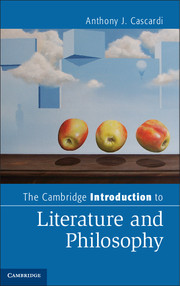Book contents
- Frontmatter
- Contents
- Acknowledgments
- Introduction
- Part I Questions of Truth and Knowledge
- Part II Questions of Value
- Chapter 5 Values, Contingencies, Conflicts
- Chapter 6 Reason and Autonomy, Imagination and Feeling
- Chapter 7 Forces and the Will
- Chapter 8 Opacity
- Part III Questions of Form
- Afterword Limits
- Glossary of Keywords
- Notes
- Index
- References
Chapter 7 - Forces and the Will
Published online by Cambridge University Press: 05 June 2014
- Frontmatter
- Contents
- Acknowledgments
- Introduction
- Part I Questions of Truth and Knowledge
- Part II Questions of Value
- Chapter 5 Values, Contingencies, Conflicts
- Chapter 6 Reason and Autonomy, Imagination and Feeling
- Chapter 7 Forces and the Will
- Chapter 8 Opacity
- Part III Questions of Form
- Afterword Limits
- Glossary of Keywords
- Notes
- Index
- References
Summary
In the time since romanticism there have been efforts, both literary and philosophical, to sustain and enlarge the commitments reflected in Wordsworth’s allegiance to the idea of a “feeling intellect,” cited at the close of Chapter 6; but there have also been many efforts to call them into question. The works of Freud and Marx are examples of the latter, as are various versions of deconstruction. We will deal with some of those approaches in the next chapter. Perhaps most common in discussions of the relationship between literature and philosophy in this area is to point to Kant as one pillar of a tradition that places its faith in reason as opposed to other dimensions of human nature, including the passions and the affects. Contrastingly, it is not uncommon to point to literature, however vaguely defined, as a tradition in which the passions, the senses, the imagination, and the will, have pride of place. As we have already begun to see with regard to the imagination, moreover, these notions are at best schematic. They neglect the fact that many of the Enlightenment thinkers – rationalists, empiricists, and idealists alike – engaged in non-dismissive ways with the passions, the senses, and the will.
As we have just seen, however, Kant and many others like him were interested in finding a way to balance the powers of the imagination, the senses, and the will, with the rational side of human nature. Thus, for example, Kant came to focus not on willfulness or on willing, but on the rational will as the key to morality. Similarly, the dynamics of taste and genius in Kant’s Critique of Judgment strive to balance the creative powers of the imagination with the demand for universal agreement in aesthetic judgments. Both the creative powers and the possibility of agreement in judgments of taste are necessary. Kant says that taste “clips the wings” (i.e., regulates) genius; genius with clipped wings is not incapable of flight, it merely flies under the guidance of reason.
- Type
- Chapter
- Information
- The Cambridge Introduction to Literature and Philosophy , pp. 95 - 107Publisher: Cambridge University PressPrint publication year: 2014

